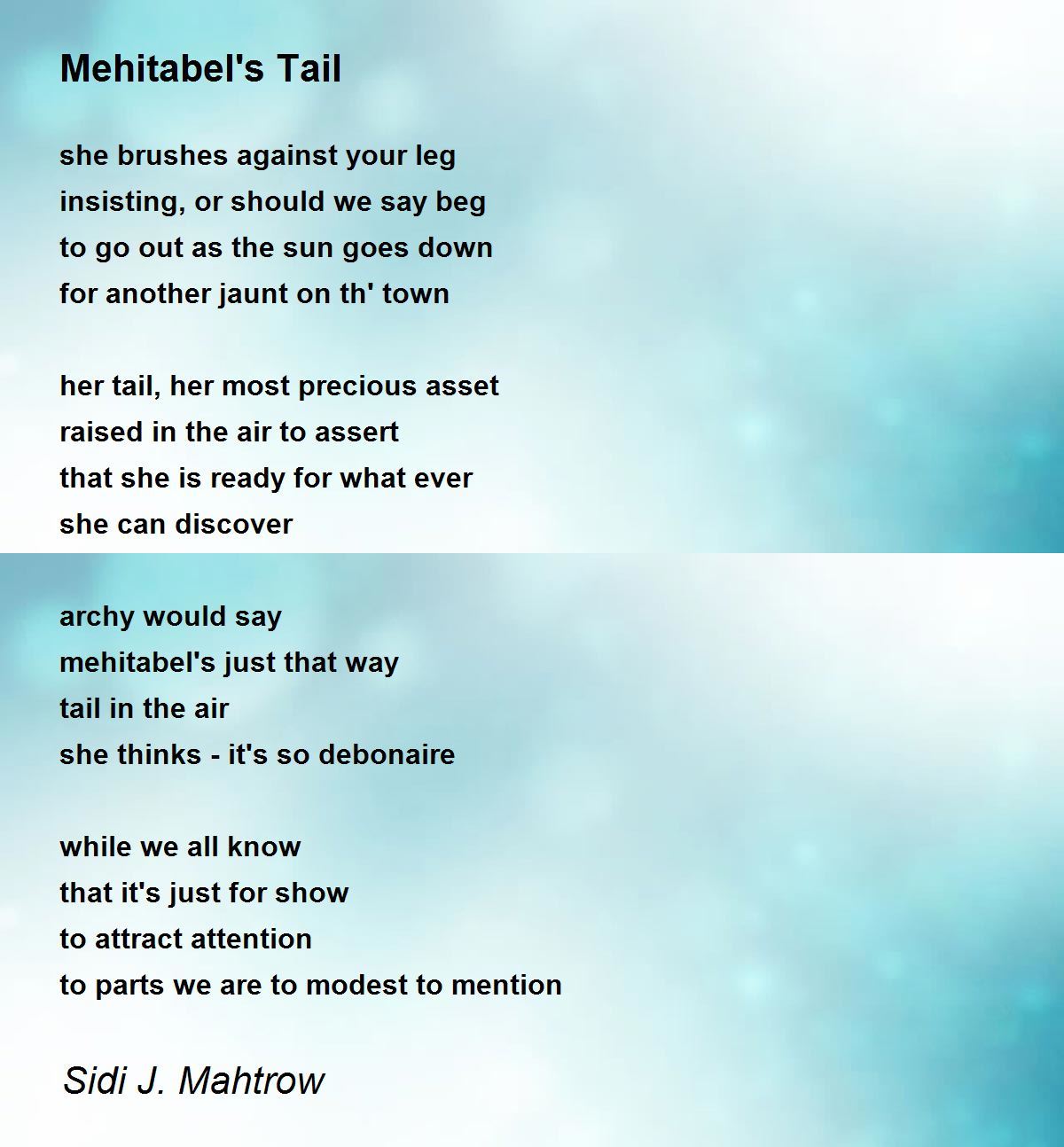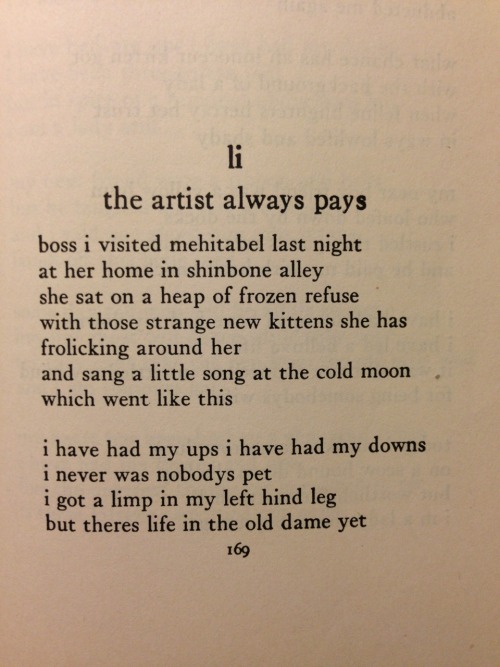
With their love and modesty, the poems evoke good feelings in me, or at least my admiration for the the soul who has had these feelings and put them down on paper.īut there is one poem stands out for its rhetoric, for its anger, for its apocalyptic tone: “ archy declares war” may be the strongest poem in the volume. For example, in one poem Archy points out the unfairness of seeing an insect as an ugly, brute thing, while a butterfly is seen as a thing of beauty. (By the way, all those doomsday preachers - they were right after all, look what’s happening!) Don Marquis’s more frequent, homier themes are friendship, loyalty, selfishness, hypocrisy, and prejudice. I now appreciate more the subtlety of the poetry, even if it doesn’t grab me by the shoulders like a doomsday preacher - or like Ginsberg sometimes. This time around I connected with Archy and Mehitabel much more than before. Mehitabel in a former life, fishing on the Nile. Mehitabel as a character is very close to Krazy Kat, Herriman’s greatest creation, and Archy makes a perfect foil for Mehitabel, but much friendlier, smarter, and deeper, more loving and sympathetic, than Ignatz Mouse, who after all mainly beaned poor sweet Krazy Kat with bricks. I wanted to look again at what Herriman did when he wasn’t doing Krazy Kat.
ARCHY AND MEHITABEL POEMS HOW TO
(I read Michael Tisserand’s Krazy - George Herriman, A Life in Black and White, which I recommend highly not only as a biography, but for the historical context it provides about Herriman’s era and before.) Herriman did the illustrations for Archy and Mehitabel, since he had the right bohemian feeling, and he certainly knew how to draw a cat. This was largely due to the attention I’ve been paying lately to the life and work of George Herriman, a favorite of mine for some years. My copy of Archy and Mehitabel had been sorted among some novels for years, out of easy reach, when I picked it up again recently.

Mehitabel discovers a cockroach busy at the typewriter after hours. So his little books were prominent on my small poetry shelf. I’ve never been much of a reader of poetry, but back then I found Ginsberg’s visionary urgency much more involving: Ginsberg’s commitment to elevated consciousness, and to a possibly elevated human civilization, reflected my feelings about my role as an artist, and his poetry rang loudly and true inside my own mind, my own zone of imaginative potential.

Maybe it would be better to say that, as verse (mostly free-verse), its tone was light, modest, suggestive, polite. But the poems still felt like light verse, even if Marquis had a lot to say that was by no means trite, banal or merely sentimental.


Marquis’s reincarnated cockroach and alley cat were excellent vehicles for his observations of society - by turns sweet, ironic, and poetic. I first read the 48 poems of Don Marquis’s Archy and Mehitabel back around 1979, and enjoyed them considerably. It is a powerful and impassioned speech on behalf of the insects of the world and against their foes, human civilization. Was Allen Ginsberg influenced in some small way by the poetry of Don Marquis? One poem in particular, “ archy declares war”, reminds me powerfully of “ Howl” and certain other poems by Ginsberg. Did Allen Ginsberg read Don Marquis’s Archy and Mehitabel?


 0 kommentar(er)
0 kommentar(er)
